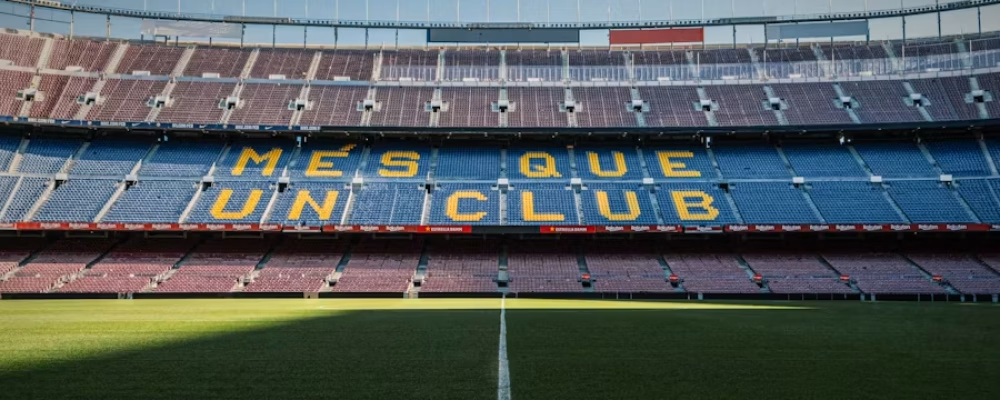FC Barcelona’s License Battle: How Olmo and Víctor Sparked a Power Struggle in Spanish Football

When Barcelona faced Athletic Bilbao on 8 January 2025 in the semi-final of the Supercopa de España, held at the King Abdullah Sports City Stadium in Saudi Arabia, they were without two high-profile summer signings. Dani Olmo, brought in from RB Leipzig for roughly €60 million, and Pau Víctor, signed permanently from Girona for €2.7 million, were unavailable not through injury but because their registrations had lapsed. In Spain, every professional footballer must hold a sporting license issued by the federation in order to represent their club in official competitions. Olmo and Víctor’s licenses lapsed on 31 December 2024 after La Liga refused renewal, arguing that Barcelona had exceeded their squad cost limit under its financial control regulations.
That uncertainty was finally resolved on 3 April 2025, when the Consejo Superior de Deportes (CSD), Spain’s High Sports Council, ruled that Dani Olmo and Pau Víctor’s registrations would remain valid for the rest of the season. Crucially, the CSD found that La Liga and the RFEF (Royal Spanish Football Federation) Monitoring Committee were not competent to cancel or deny the renewal of licenses, meaning the two bodies must respect the full length of both players’ contracts. As a result, Olmo is now registered until his deal expires in 2030, while Víctor was registered until 2029, although he has since left the club to sign for Braga.
How Barcelona’s Registrations Unravelled
The saga began in the summer of 2024. Barcelona signed Olmo and Víctor despite operating above their La Liga-imposed squad cost limit. Article 93 of the Rules for Club Budget Preparation (NEP) prohibits the registration of any player if the salary cap is exceeded. The only flexibility comes from Article 77 NEP, which allows a replacement to be registered when a player suffers a long-term injury, provided the new player’s wages do not exceed 80 per cent of the injured player’s. Barcelona relied on this provision to secure temporary licences for Olmo and Víctor, linked to injuries suffered by Andreas Christensen and Ronald Araújo. These registrations were approved until 31 December 2024, when they automatically expired.
The club hoped to extend them by pointing to a €100 million deal announced on 3 January 2025, selling rights to 470 VIP seats at the redeveloped Camp Nou to investors from the Middle East. Barcelona argued that this transaction restored their financial capacity to register players. La Liga disagreed, noting that the revenue had not been included in the club’s accounts for the 2024-25 season and questioned the use of multiple auditors. It reported one of the firms involved to Spain’s Institute of Accounting and Auditing of Accounts and insisted the deal did not resolve Barcelona’s overspending.
At the same time, La Liga and the RFEF Monitoring Committee relied on the literal wording of Articles 130.2 and 141.5 of the RFEF General Regulations to block fresh registrations. Article 130.2 states that a player may only be registered with one team of a club during a season, “without the possibility of being deregistered and re-registered by the same club during the same season, except in cases of force majeure or regulatory provision.” Article 141.5 goes further: “Players whose licences are cancelled cannot, during the same season, obtain a licence with the same team of the club to which they were previously linked.” On this basis, La Liga and the RFEF argued that the expiry of the temporary licences on 31 December amounted to a cancellation, and that Olmo and Víctor therefore could not be re-registered for the rest of the season.
CSD Tips the Balance
On 8 January 2025, the CSD granted an injunction that allowed Dani Olmo and Pau Víctor to continue playing while the dispute was under review. It stressed that the decision was purely precautionary and adopted with the sole aim of avoiding irreparable harm to the players’ careers until the dispute was resolved.
A final resolution came on 3 April 2025, where the CSD upheld the appeal brought by the players and the club, and annulled the agreement of the joint La Liga and RFEF Monitoring Committee. It held that the Committee lacked authority to refuse a prior visa or license, as its role under the Coordination Convention is limited to interpreting provisions, monitoring compliance and promoting effectiveness, and thus declared the Committee’s decision null and void.
The CSD also highlighted that the RFEF had itself acknowledged no resolution had ever been passed to cancel the players’ licenses, which therefore remained valid.
Finally, the CSD was careful to confine its reasoning to the issue of institutional competence. It stressed that the appeal was not about the legitimacy of La Liga’s system of financial control, which remains a matter for the league’s own Budget Validation Body and Economic Control Committee. Instead, the case turned on the principle that decisions affecting fundamental rights of players and clubs must be taken by the body legally empowered to do so.
The Wider Battle for Authority
FC Barcelona were ultimately able to secure the registration of both players’ contracts, bringing an end to months of uncertainty. Pau Víctor has since departed on a permanent transfer to Braga, but the decision secures the status of marquee signing Dani Olmo until 2030. La Liga has already signalled its intention to appeal the ruling, meaning the legal battle is far from over.
The CSD’s intervention has resolved the immediate issue on the pitch, but it has also opened a wider debate about who holds the final say in the governance of Spanish football.